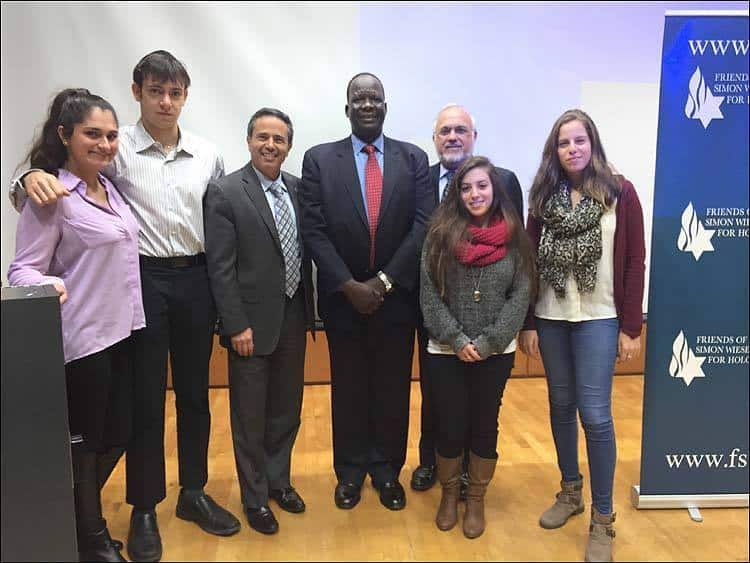On October 30, Sudanese human rights activist Simon Deng asked an audience at Hart House to challenge their preconceived notions of humanitarian aid on the international level. The event was jointly hosted by the Friends of Simon Wiesenthal Centre and Israel on Campus
Deng, a victim of child slavery, spoke about the Sudanese Civil War and the lack of humanitarian support from the United Nations.
Sudan was Africa’s largest country until 2011, when South Sudan seceded and became an independent country. Today, slavery and ethnic cleansing are both grave issues facing Sudan. “When you are a victim, you ask ‘why, why, why,’” Deng said.
According to Deng, almost three million people have died as a result of Sudan’s civil crisis, and a further seven million have been displaced from their homes. This is perhaps the largest ongoing crisis in the world, Deng said, and yet very little attention is accorded to it on the international level.
Deng said that friction between Islam — the major religious belief of the Sudanese government — and tribal traditions is perpetuating the conflict.
He argued that the United Nations does not intervene due to their hesitance to criticize Islam because, he suggested, many in the West see faith as above criticism.
Deng also described his experiences as a slave, when he was beaten daily and forced to sleep among animals. He was promised freedom only if he renounced all ties to his family and home, which he refused.
When asked about possible solutions to the crisis, Deng suggested that the international community “must stop perpetuating hate” and look “forward from the pains of the past.”


